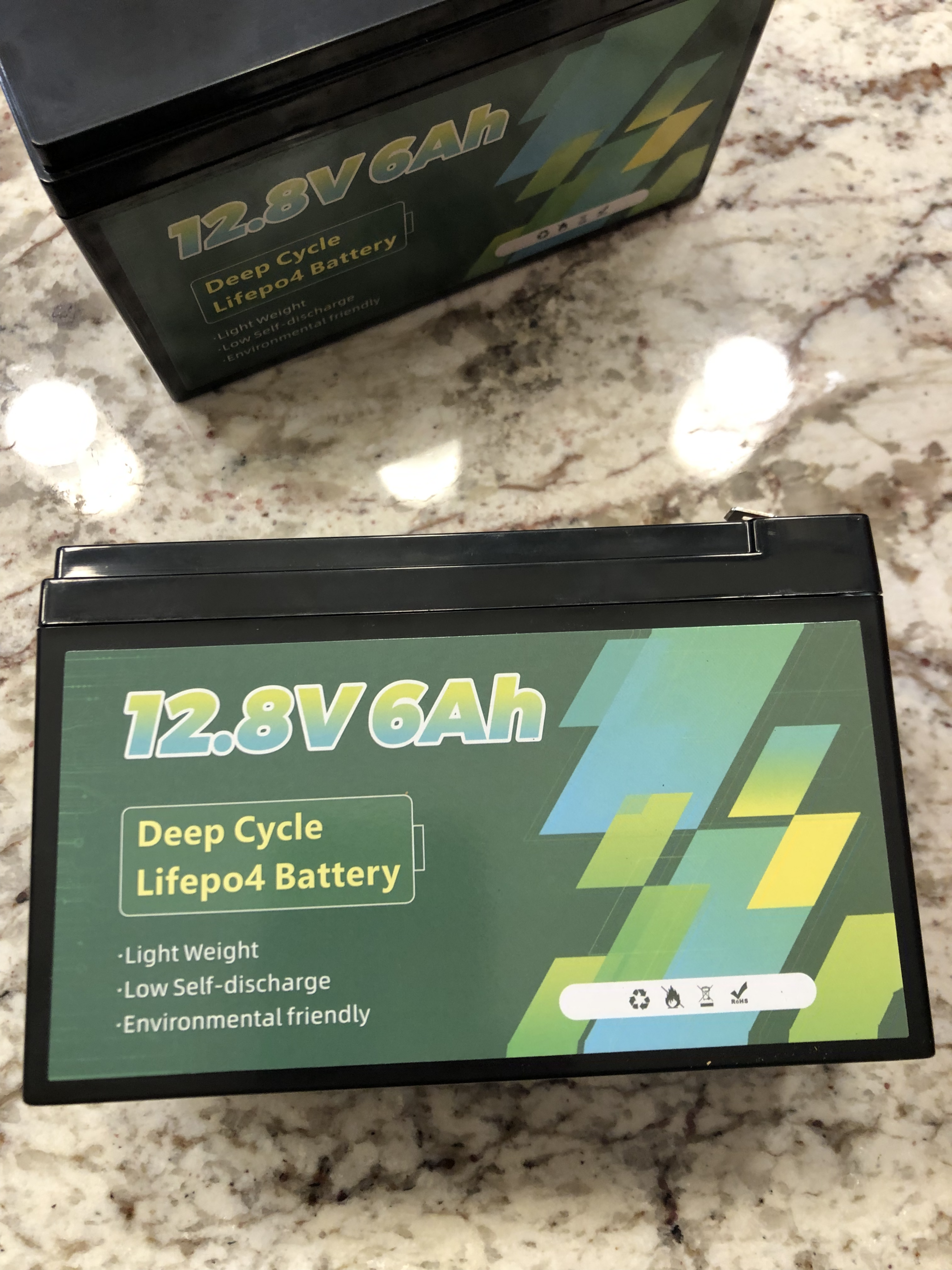After using the Pecron Solar generator and the Lisuateli battery in my solar system I’m sold on LiFePO4 batteries! They are a fraction of the weight of comparable lead acid batteries and in general have longer run and discharge times. So when it was time to replace the batteries in my UPS I decided to go with LiFePO4s. At the time of writing this the prices of LiFePO4 batteries have dropped significantly. The generic lead acid replacement batteries for the UPS were about $29/ea. I ordered the Enerakkus LiFePO4s for $16.50/ea!

The Enerakkus brand of LiFePO4 batteries is one, if not the cheapest on Amazon. I have been considering adding more batteries to my solar system and have been looking at the Enerakkus 12V 100Ah. It’s currently $145 with $30 shipping which is the cheapest I’ve seen. I figured I’d try their inexpensive 6Ah before dropping bigger dollars. The image from Amazon was the generic black one shown here.

What arrived was these green labeled batteries. I had seen this label before and had to go back in my browser history and sure enough this exact battery is being sold under the Lisuateli brand. So it appears that Enerakkus and Lisuateli are manufactured by the same company? To add further confusion, when looking up Lisuateli batteries on eBay they come up under the Feence store. To add even more confusion in the AliExpress Lisuateli store they also list the Kcvolro brand as well. Not that it’s a surprise but it appears that these and probably others are manufactured by the same company and just sold under different names.
The first thing I noticed about these batteries was the weight. They were so light compared to the cells they were replacing. The Enerakkus weighed in at 3lb 9oz while the original Yuasa was a hefty 11lb .05oz. That’s a third of the weight. Now the question is will it perform as well?




Installation was a breeze and the UPS fired right up. The capacity shows as 100% and I’ve done a few tests and the LiFePO4s seems to be doing the job. The only thing I’m concerned about is that the charging program in the UPS is optimized for lead acid. What this means is that it’s possible that the LiFePO4s life could be reduced as they don’t need the float part of the charge profile. I think even if that is the case the LiFePO4 would still have a longer life than the comparable lead acid battery.
In the future it would be great if the UPS manufactures allow you to change charge profiles. I know some of the APC UPSs allow you to change capacity, hopefully chemistry changes will follow soon.
